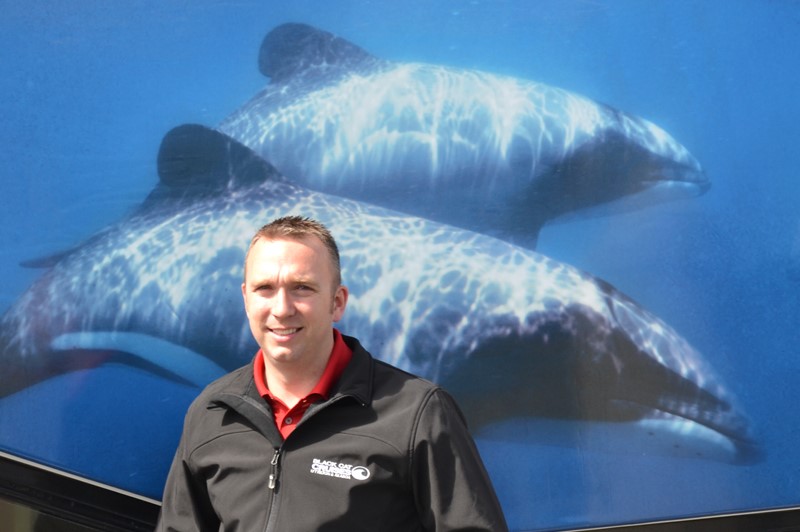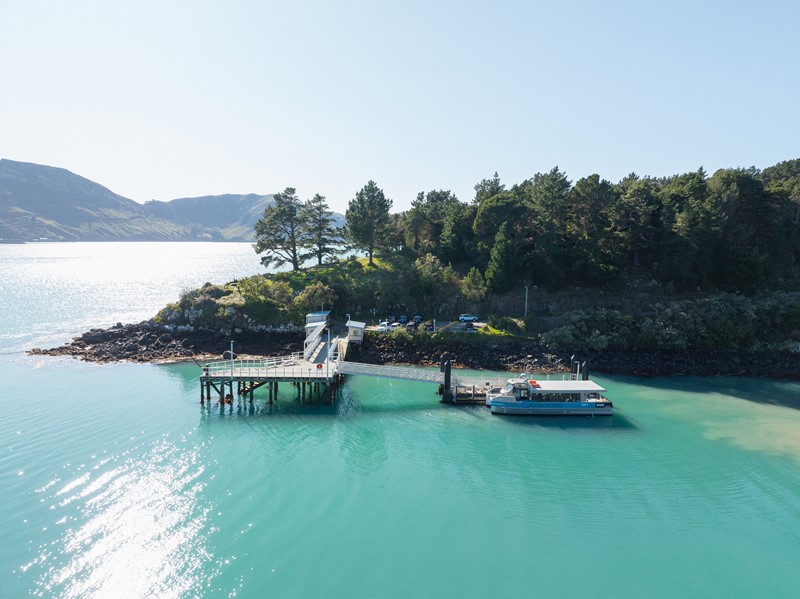Small business making sustainability a priority
When the ocean is your office, a sense of stewardship over the natural environment almost comes with the job.
For Black Cat Cruises, caring for the oceans and wildlife who call it home has been a core value from the start. Today they have broadened that focus to include lowering their environmental impact, learning plenty along the way.
Black Cat Cruises offer once-in-a-lifetime experiences for guests to swim with dolphins and observe them in their natural habitat, on the stunning Akaroa and Lyttelton Harbours. With 30 permanent staff increasing to 50 over the busy summer periods, the company hosts around 215,000 passengers every year.
Chief Executive Paul Milligan says “We're not perfect in the sustainability space, but it's always been part of the foundation for the business. In the early years, that focus was dolphin protection, looking after our oceans and that sort of thing. And then over time, the focus shifts.”

For many businesses, lowering carbon emissions is the ultimate goal and this is becoming more prominent in customer facing industries such as tourism, although finding sustainability perfection is not a simple feat.
Paul explains, “The reality is our boats burn diesel. And while in a perfect world we would be out there with hydrogen boats, the technology is just not there yet. There's that balance of okay that's a perfect world, but in the meantime what can we do?”
Since 1985, Black Cat Cruises has taken action in conservation. They were a part of the group who worked to extend protection for our native dolphin, resulting in the government’s ‘Threat Management Plan’ released in 2020. They continue to advocate for further protection around Banks Peninsula, especially for a ban of set netting which is the biggest threat to the dolphins.

Conservation is now embedded into the everyday operations of the business, and it’s how they hope environmental sustainability will become too.
“One of the things we did a few years back was look at how we could reduce the time the boat engines were running and potentially burn less fuel. While we're loading passengers on board, we would traditionally keep our engines running to keep the boats nicely alongside the wharf. By designing a new boarding ramp, we were actually able to do that without having the engine running.
“It saved us roughly 15 minutes of running time per trip, which can save us around 2000 litres of diesel a year. That’s approximately five tonnes of carbon, just by a relatively simple step of changing a process.”
Paul Milligan - Chief ExecutiveWe're not perfect in the sustainability space, but it's always been part of the foundation for the business. In the early years, that focus was dolphin protection, looking after our oceans and that sort of thing. And then over time, the focus shifts.
With eight vessels operating, burning 2000 litres less diesel a year is not only a great result for the planet, but a great result for the bottom line. It also highlighted the value in measuring.
Paul says, “You need to know where you currently are. And then you can go, okay let’s start by trying something small. It's not until you then review it you can actually see if something is having an impact. You need to have that measurement up front to know what areas need attention.”
Some of the ‘low hanging fruit’ has included removing all plastic bottles and paper cups from boats and stores. These small changes, which are becoming more widely expected of businesses, are not so small when you start to look at the numbers.
When you quantify each plastic bottle sold over the year, you can start to see huge amounts of waste going to landfill.
Paul believes this is why measuring is so important. It gives you a starting point and after making small changes, you can measure to see the impact. The small changes often end up being quite significant.

Another area of focus is education. In a space that can sometimes feel daunting and overwhelming, knowledge is proving to be empowering. A few staff are currently taking part in the ‘Developing Your Sustainability Roadmap’ course by DETA Consulting. The course is designed to increase sustainability literacy and help businesses develop sustainable action plans.
Paul explains, “We absolutely want to learn more and trying to find those areas that we don't intuitively work on, it's about trying to build some better processes. And I guess looking at the bigger picture and asking ourselves what our long-term plan is.”
His advice for others is to find your starting point and ask for support.
“Things like carbon footprint measuring can be quite a daunting task, as it can balloon out to all sorts of things. So don’t hesitate to get a bit of advice from others, there are many support resources in Christchurch. There are people who can help you know what's appropriate for your business and guide you through it.”